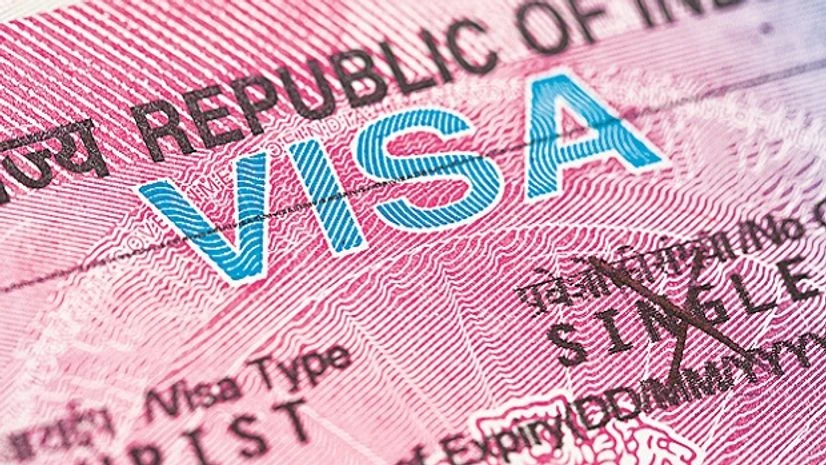An immigration research think tank here today accused Indian companies of exploiting a "gaping loophole" in the intra-company transfer (ICT) visa route to bring in thousands of workers from India, denying resident British workers jobs in the IT industry.
Migration Watch UK, which lobbies for lower migration levels, said international IT companies, "typically based in India", obtain a contract to deliver a project or support services to a UK entity and then staff it with workers from the company's home country, a system referred to as third-party contracting.
"This practice is almost entirely confined to the IT industry. In fact, even within that sector, it is only a handful of large, mainly Indian, companies that are responsible for sponsoring the vast majority of ICTs in this way," Migration Watch UK said in a report titled 'Distortion of the ICT visa system'.
However, industry experts challenged Migrant Watch UK claims, pointing to more "unfilled vacancies" in the IT sector than any other last year and stressing the importance of intra-company transfers.
"Intra-company transfers hugely benefit the UK, boosting investment by international companies and creating jobs in the UK," said Matthew Percival, Head of Employment at the Confederation of British Industry (CBI).
Also Read
Under the Tier 2 Intra-Company Transfer route, foreign companies that have a presence in the UK can move employees from abroad to Britain without having to obtain a visa under the wider Tier 2 provisions for skilled workers, which is capped at 20,700 a year.
Migration Watch claims the use of the ICT route, which has no restriction on numbers, has grown eight-fold since 1992 to 58,000 last year.
As part of a breakdown of these visa figures, it pointed to Tata Consultancy Services (TCS) as the "single-most prolific company", which used 6,285 ICTs overall in 2017, of which 6,205 (98.7 per cent) were for third-party contracting.
Others from a total of 16 Indian companies on the list include Infosys (2,030), Wipro Technologies (1,795) and Tech Mahindra (1,020). Other users of the route were US companies like Cognizant (2,780) and IBM (1,135), besides smaller numbers from Ireland, France and Japan.
"Many people are asking why non-EU migration has not been reduced. Here is part of the answer Those who have lost out are British workers whose opportunities have been diminished," said Lord Green, Chairman of Migration Watch UK.
The group claims the system is being misused to "undercut" British competitors and is going "very much against the spirit" in which it was originally devised for posting senior executives to and from the UK. It recommended significant changes to the ICT route to ensure that it is no longer seen as a mechanism by which to bring "unlimited migrant labour" into the country.
TechUK, the IT industry representative body which had struck the UK-India Tech Alliance with NASSCOM earlier this year, said it was wrong to suggest that international talent undercuts UK domestic skills and called on a more open approach as Britain is set to leave the European Union (EU).
Antony Walker, Deputy CEO TechUK, said, "The UK is a world leader in tech because it is open and attractive to the best international talent. While it is right that the industry continues to build our domestic skills pipeline, maintaining routes that allow businesses to get the workers they need, where and when they need them, is critical to the tech sector and to our economy.
"At a time when many tech firms are already concerned with changes to EU migration, the government should be looking to make it easier to secure international talent to support the needs of a growing digital economy, including by removing the arbitrary cap on Tier 2 visas. That is a far better way to help drive the competitiveness of the UK post-Brexit and create jobs".
The UK Home Office pointed to a series of reforms to Tier 2 visas, effective from April 2017, following a review by the Migration Advisory Committee (MAC) to ensure the ICT route served its purpose.
As part of the changes, the salary threshold for all workers coming in to the UK through the ICT route was raised to 41,500 pounds. These workers, who do not have access to settlement rights in the UK, are also required to spend a minimum of one year working for the company overseas before they can re-enter to work in the UK after their initial ICT visa expires, unless they are paid at least 120,000 pounds.
Additionally, the government imposed an Immigration Health Surcharge on these workers as well as an Immigration Skills Charge of 1,000 pounds per migrant worker on the companies.
A Home Office spokesperson said, "The Tier 2 intra-company transfers (ICT) is a temporary visa route which supports inward investment to the UK. It enables multinational companies to transfer senior, highly skilled individuals between their international branches and the UK for a limited period".

)
